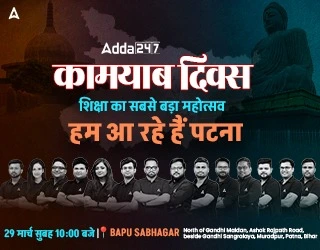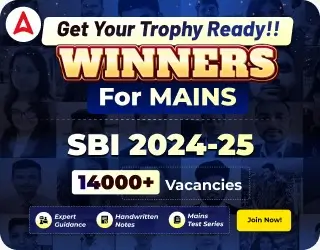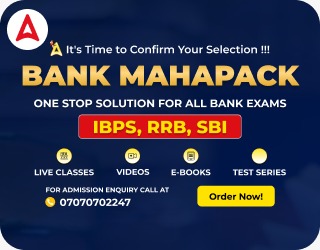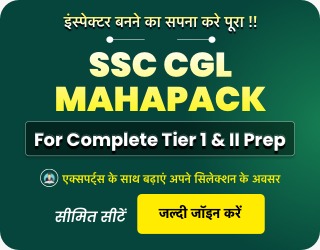Table of Contents
TN TRB BEO Syllabus 2023
TN TRB BEO Syllabus 2023: The TN TRB Block Educational Officer Syllabus 2023 and the TN TRB BEO Exam Pattern 2023 have been discussed in this article. Candidates who are going to appear for the TN TRB BEO can start preparing for the exam with the TN TRB BEO Syllabus 2023. The written exam for the TN TRB BEO will be conducted in September 2023 and candidates have an ample amount to prepare for the TN TRB BEO Syllabus 2023. The candidates can find the complete TN TRB BEO Syllabus 2023 from this article along with the Exam Pattern 2023.
TN TRB BEO Syllabus 2023 Overview
The candidate can find all the important details of the TN TRB BEO Syllabus 2023 in this article, however before that they can get all the details about the TB TRB BEO Recruitment 2023 from the overview table given below.
| TN TRB BEO Syllabus 2023 | |
| Organization | Tamil Nadu Teachers Recruitment Board |
| Post Name | Block Educational Officer |
| Advt. No. | 01/2023 |
| Vacancy | 33 |
| Category | Govt Jobs |
| TN TRB BEO Notification 2023 | 6th June 2023 |
| TN TRB BEO Application Mode | Online |
| Registration Dates | 6th June 2023 – 5th July 2023 |
| Selection Process | Tamil Eligibility Test, Written Exam, Certificate Verification |
| Eligibility Criteria | Graduation, B.Ed, Tamil language |
| Salary | Rs.36,900-1,16,600/- |
| TN TRB Official Website | trb.tn.gov.in |
TN TRB BEO Exam Pattern 2023
The candidates can get complete the TN TRB BEO Exam Pattern 2023 from the table given below. The TN TRB BEO Exam Pattern 2023 consist of the number of questions and total marks along with the duration of the examination.
TN TRB BEO Exam Pattern: Part A
The TN TRB BEO Exam Pattern 2023 Part A is Compulsory Tamil Language Eligibility Test which is an objective type test.
| TN TRB BEO Exam Pattern 2023 | |||
| Subject | No. of Questions | Total Marks | Duration |
| Tamil Language Eligibility Test | 30 | 30 | 40% |
TN TRB BEO Exam Pattern: Part B
The TN TRB BEO Exam Pattern 2023 Part B is Main Subject which is also an objective type test.
| TN TRB BEO Exam Pattern 2023 | |||
| Subject | No. of Questions | Total Marks | Duration |
| General paper | 110 | 110 | 3 Hours |
| General Knowledge and Current Affairs | 10 | 10 | 3 hours |
| Educational Methodology | 30 | 30 | |
| Total | 150 | 150 | |
TN TRB BEO Syllabus
The candidates must note that the TN TRB BEO Exam 2023 includes three topics in the TN TRB BEO Syllabus 2023 includes General Paper, General Knowledge, and Educational Methodology. In this article, we have included the TN TRB BEO Syllabus 2023 for both core subjects and Child Psychology and Pedagogy. The below given tables has all the details of the TN TRB BEO Syllabus.
TN TRB BEO Syllabus 2023: Core Subjects
The candidates can find the unit wise TN TRB BEO Syllabus 2023 for the core subjects from the table given below.
| TN TRB BEO Syllabus 2023 | |
| Subject | Syllabus |
| Unit 1 – History of Tamil Literature | Sangam Age to Present – Sangam Literature – Notes on Sangam Literature – Compilation Method of Idylls (Paattu) and Anthologies (Thogai) – Significance of Sangam Literature Eighteen Lesser Texts (Pathinenkilkanakku) Significance of Tamil Books of Law (Needhi Noolgal) The Five Great Epics (Aimperumkappiyangaḷ) The Five Small Epics (Ainchirumkappiyangal) Bhakti Literature, Thevaram, Naalayira Dhivya Prabhandham, Thirumandhiram, Thiruppugazh, Pattinathaar, Arunagirinathar, Thaayumaanavar, Vallalar, Kambaramayanam, Mahabharatham, Periya Puranam, Thiruvilayadal Puranam Sitrilakkiyangal, 96 Prabhandhangal, Kovai, Pillaitamil, Kalambagam, Ula, Thoodhu, Parani, Pallu, Kuravanji Religious sects growth by Tamil – Jainism, Buddhism, Islam, Christianism Siddhargal, Social Reformation (Samooga Seerthiruttham) Present Day Tamil Literature – Development of Tamil Prose, Tamil Fiction, Novels, Short Stories, Tamil Folklores, Essays, Literature Tamil Grammar – Letters, Words, Meanings, Yaappu Ilakkanam, Ani Ilakkanam |
| Unit 2 – History of English Literature | Development of Prose, Poetry, Fiction, Drama and Grammar Approaches to Literature (From 1830 to the Present day) Modern Drama, Modern Fiction, Literary Movements, Literary Criticism and Theory Teaching of English in India, Journalism and Creative Writing in English British English Literature – American English Literature, Indian English Literature English Language and Grammar, Origin of English Language General Characteristics of Old and Middle English Rise and Growth of Modern English Growth of Vocabulary – Greek, Latin, French, Italian, Scandinavian and other foreign influences, Word Formation, Change of meaning The Makers of English – Spenser, Shakespeare, Milton and Dr. Johnson Basic English Grammar – Parts of Speech, Tenses, Voice, Singular/Plural, Spelling Reforms |
| Unit 3 – Mathematical Aptitude and Mental Ability Tests | Data Analysis, Conversion of Information to Data Presentation and Interpretation of Data Tables, Graphs and Diagrams, Analytical Interpretation of Data Simplification, Percentage,Highest Common Factor (HCF), Lowest Common Multiple (LCM), Ratio and Proportion Simple Interest, Compound Interest, Area, Volume, Time & Work Decision Making and Problem Solving, Logical Reasoning, Puzzles, Dice Numerals, Verbals and Non verbals |
| Unit 4 – General Science | Physics: Units and Measurement Laws of motions Force, Work, Energy and Power Properties of Matter Current Electricity Magnetism Heat, Light and Sound Atomic Devices Electronic DevicesChemistry: Classification of Matter Stoichiometry Types of Reactions Extraction of Metals (Zn, Cu, Al, Au, Ag, Pb) Acids and Bases Periodic Classification Chemical Bonding Compounds of Carbon, Nitrogen, Oxygen and Sulphur Gas Laws Drugs, Fertilizers, Dyes and Polymers Botany: Zoology: |
| Unit 5 – History – National Movements of Tamil Nadu and India and Constitutional Development | South Indian History – Culture and Heritage of Tamil People Advent of European Invasion, Expansion and Consolidation of British Rule, Effect of British Rule on socio-economic factor Social reforms and religious movements India since Independence, Characteristics of Indian culture Unity in Diversity; Race, colour, language, custom India as a secular state, Organizations for fine arts, dance, drama, music, Growth of rationalism Advent of Europeans, Early uprising against British rule – 1857 Revolt Indian National Congress, Emergence of National Leaders, Growth of Militant Movements Role of Tamil Nadu in Freedom Struggle Birth of political parties/political system in India since Independence Dravidian movement in TN, Political parties and populist schemes Prominent personalities in the various spheres; Arts, Science, Literature and Philosophy Constitution of India – Preamble to the Constitution, Salient features of the Constitution, Union, State and Territory – Fundamental Rights, Fundamental Duties, Human Rights Charter – Union Legislature, Parliament, State Executive, State Legislature, Assembly, Status of Jammu and Kashmir – Local Government, Panchayat Raj – Tamil Nadu – Judiciary in law, Rule of Lae/Due Process of Law, Indian Federalism, Centre-State Relations, Emergency Provisions – Elections, Election Commissions – Union and State – Amendments to Constitution, Schedules to Constitution, Administrative reforms and Tribunals – Corruption in Public Life, Anti Corruption Measures – Central Vigilance Commission, Lok Adalats, Ombudsman – Comptroller and Auditor General of India, Right to Information, Central and State Commissions, Empowerment of Women |
| Unit 6 – Physical Geography and Economic, Commercial Geography of India | Universe – Solar System, Earth and Atmosphere, hydrosphere and lithosphere Monsoon, rainfall, weather and climate, Water Resources Geography of India, Physical Features: Soil, minerals and natural resources, Natural Vegetation, Forest and Wildlife Agricultural Pattern, Livestock and Fisheries Social Geography, Population – Density and Distribution Natural Calamities – Disaster Management Geographical Landmarks, Policy on environment and ecology Geography of Tamil Nadu Nature of Indian economy, Five year plan models – an assessment, Land reforms and agriculture, Application of Science in agriculture Industrial Growth, Role of Public Sector and disinvestment, Development of infrastructure, National Income, Rural Welfare oriented programmes Social sector problems – population, education, health, employment, poverty, HRD (Human Resource Development) Sustainable Economic Growth, Economic Trends in Tamil Nadu Energy – Different Sources and Development Finance Commission, Planning Commission, National Development Council Current Socio-Economic Problems, New Economic Policy and Government Sector, NITI Aayog, Liberalization, Privatization, Globalization and Marketing |
| Unit 7 – General Knowledge and Current Affairs | Latest diary of events – National, National Symbols, Profile of States Eminent persons & places in news, Sports & Games, Books & Authors, Awards & Honors Latest historical events, India & its neighbors Science & Technology – Latest inventions Latest discoveries in Health Science, Mass media and Communication |
TN TRB BEO Syllabus 2023: Child Psychology and Pedagogy/Education Methodology
The candidates can find the unit wise TN TRB BEO Syllabus 2023 for child psychology and pedagogy/Education Methodology from the table given below.
| TN TRB BEO Syllabus 2023 | |
| Subject | Syllabus |
| Unit 1 – Human Growth and Development | Interaction of Nature and Nurture Concept Distinction among Growth, Development and Maturation General Principles of Growth and Development Characteristics, Dimensions of Development – Physical, Cognitive, Emotional, Social and Moral Phases of Development and Development Tasks – Infancy, Childhood and Adolescence |
| Unit 2 – History of English Literature | Cognitive Process Attention – Factors relating to attention, Kinds of attention, Inattention, distraction and division of attention, Span of attention Sensation and Perception – Factors relating to perception, Perceptual Errors, Concept Formation – Nature and types of concept Piaget’s stages of cognitive development, Bruner’s theory Concept Maps, Imagery, Language and Thinking, Reasoning and Problem Solving, Implications to the Teacher |
| Unit 3 – Social, Emotional and Moral Development | Social Development – Factors, Social Maturity, Erikson’s Stages of Social Development Emotional Development – Meaning, Positive and Negative Emotions, Emotional Control and maturity, Place of emotions in life Significance of Emotional Intelligence Moral Development – Kohlberg’s stages of Moral Development |
| Unit 4 – Learning | Learning – Nature & Importance Individual Differences in Learning – Learning Curves Factors influencing Learning – Theories of Learning Conditioning: Classical and Operant (Pavlov, Skinner), Trial and Error (Thorndike), Learning by Insight (Kohler) Transfer of Learning, Learning by imitation Levels of Learning – Gagne, Remembering and Forgetting – Curve of Forgetting |
| Unit 5 – Intelligence and Creativity | Intelligence – Nature and Distribution Theories of Intelligence – Single, Two and Multifactor theories Guilford’s structure of the Intellect Gardner’s Multiple Intelligence Theory Constancy of IQ, Assessment of Intelligence, Users of Intelligence Tests Process of Creativity – Creativity and Intelligence Identification and promotion of Creativity Thinking: Convergent and Divergent Thinking |
| Unit 6 – Motivation & Group Dynamics | Motivation and Learning, Kinds of Motives Theories of Motives: Maslow’s Hierarchy of Needs, Role of Rewards and Punishments, Level of Aspiration Achievement Motivation, Techniques of developing Achievement Motivation Motivation in the Classroom Context, Competition and Cooperation Leadership Traits, Leadership styles and Classroom Climate |
| Unit 7 – Personality and Assessment | Meaning and Definitions of Personality, Major Determinants of Personality, Theories, Types and Traits of Personality Psycho-analytic assessment of Personality: Projective and Non Projective techniques Aptitude – Concept, types and measurement Attitude & interest – Concept and measurement Integrated Personality |
| Unit 8 – Mental Health and Hygiene | Concept of Mental Health and Hygiene, Conflict and Frustration, Unrest, Adjustment and Maladjustment, Causes of Maladjustment Defence Mechanisms, Mental Illness, Juvenile Delinquency Promotion of Mental Health of Students and Teachers |
| Unit 9 – Guidance and Counselling | Nature, types and need of Guidance and Counseling – Educational, Vocational and Personal Identification of Children with Counseling needs Counseling Techniques – Individual and Group Guidance and Counseling for children with Learning Difficulties |
| Unit 10 – History of Educational Development in Tamil Nadu | Educational System – Ancient, Medieval, Modern Development and Growth of Modern Educational System (since 1813 to present day) Organisational Structures of Educational System in Tamil Nadu (DSE, DEE, SSA, SCERT, Non-Formal) Roles and Responsibilities of DEO, CEO, BEO, Acts & Rules, RTE Schools run by other departments in Tamil Nadu Kallar Reclamation, Forest Department, Adhi Dravida and Tribal Welfare Department and other Departments Implementation of Educational Schemes in Tamil Nadu |

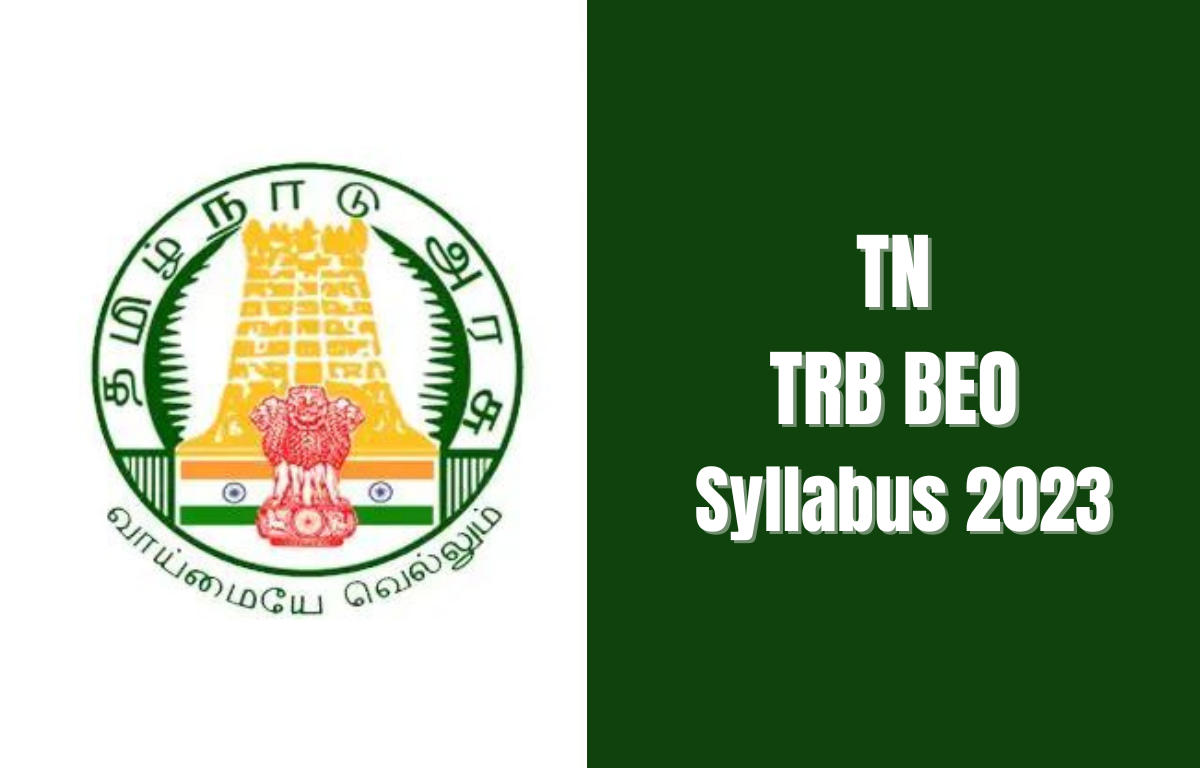

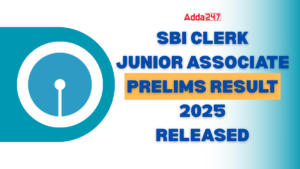 SBI Clerk Pre Result 2025 Out @sbi.co.in...
SBI Clerk Pre Result 2025 Out @sbi.co.in...
 SBI Clerk Cut Off 2025 Out, State Wise a...
SBI Clerk Cut Off 2025 Out, State Wise a...
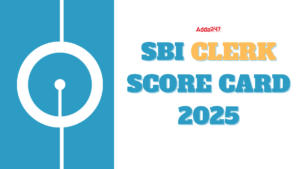 SBI Clerk Score Card 2025 Out, Download ...
SBI Clerk Score Card 2025 Out, Download ...
